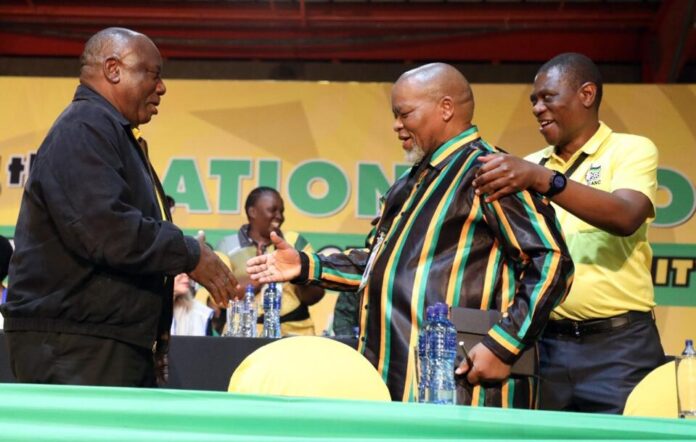The negotiations between the ANC and the Democratic Alliance (DA) to form a national government of unity (GNU) have hit a major stumbling block, causing political turmoil and uncertainty as both parties clash over crucial cabinet positions. The dispute revolves around the trade and industry department, with the ANC expressing concerns about the potential impact on Broad-Based Black Economic Empowerment (BBBEE), transformation, and redress if the DA were to assume control of the portfolio.
President Cyril Ramaphosa's initial offer of the trade and industry department to the DA was met with resistance from key ANC officials, including Deputy President Paul Mashatile and Chairperson Gwede Mantashe. They voiced their reservations about handing over the crucial economic portfolio, prompting Ramaphosa to backtrack on his offer. As a result, the negotiations have reached an impasse, leaving South Africa without a cabinet and creating uncertainty about the future of the GNU.
The DA, feeling slighted by the ANC's about-face, has threatened to walk away from the negotiating table. The party's demand for proportional representation, which it calculated to be ten ministerial posts, has further strained the delicate negotiations. A leaked letter from DA leader John Steenhuisen to President Ramaphosa revealed the party's dissatisfaction with the ANC's final offer of six posts, insisting on two additional ministerial and deputy ministerial positions.
President Ramaphosa responded to the DA's demands with a terse letter accusing the party of "moving the goalposts" and attempting to establish a "parallel government" outside the constitutional framework. The president labeled the DA's proposals to review contracts and tenders as "legally incompetent." The heated exchange between the two leaders highlighted the deepening cracks in the negotiations.
The impasse over the trade and industry portfolio not only threatens the formation of a national government but also has far-reaching implications for South Africa's economic powerhouses, Gauteng and KwaZulu-Natal, as well as municipalities and metros across the country. The trade and industry department plays a crucial role in advancing the government's transformation agenda, and handing it to a party that opposes key aspects of this agenda has been met with outrage.
Critics argue that the DA's core policies, which conflict with transformation objectives such as BBBEE and affirmative action, make it an unsuitable candidate to oversee the trade and industry department. An anonymous official in the department expressed concern that key levers of transformation, including agencies like the National Empowerment Fund, could be compromised under a DA minister. The official questioned the audacity of the DA's desire to control a department that contradicts its own policies.
As the ANC remains steadfast in its refusal to hand over the trade and industry portfolio, both parties find themselves at a crossroads. The DA is convening to determine its next move, while the ANC shows no signs of budging on its stance. The negotiations, once seen as a beacon of hope for unity, have descended into a war of words and differing interpretations of the statement of intent.
President Ramaphosa's frustration with the DA's negotiation tactics has become increasingly evident. In a letter to Steenhuisen, he criticized the party's reliance on written correspondence, citing leaks and a lack of genuine interaction. Ramaphosa also condemned Helen Zille's demands regarding ministerial posts, directors-general appointments, and procurement contract reviews as "offensive, condescending, and inconsistent with the Constitution." He accused the DA of attempting to establish an illegal "parallel government."
Despite the mounting challenges, Ramaphosa expressed his willingness to continue discussions, highlighting the urgency of forming a government of national unity. However, he clarified that the statement of intent did not specify proportional allocation of Cabinet posts based on electoral performance, undermining the DA's argument for additional positions.
As South Africa remains in limbo, the fate of the unity talks hangs in the balance. The ANC and DA must navigate the treacherous waters of compromise and find common ground to establish a government that serves the interests of all South Africans.

Follow Us on Twitter











